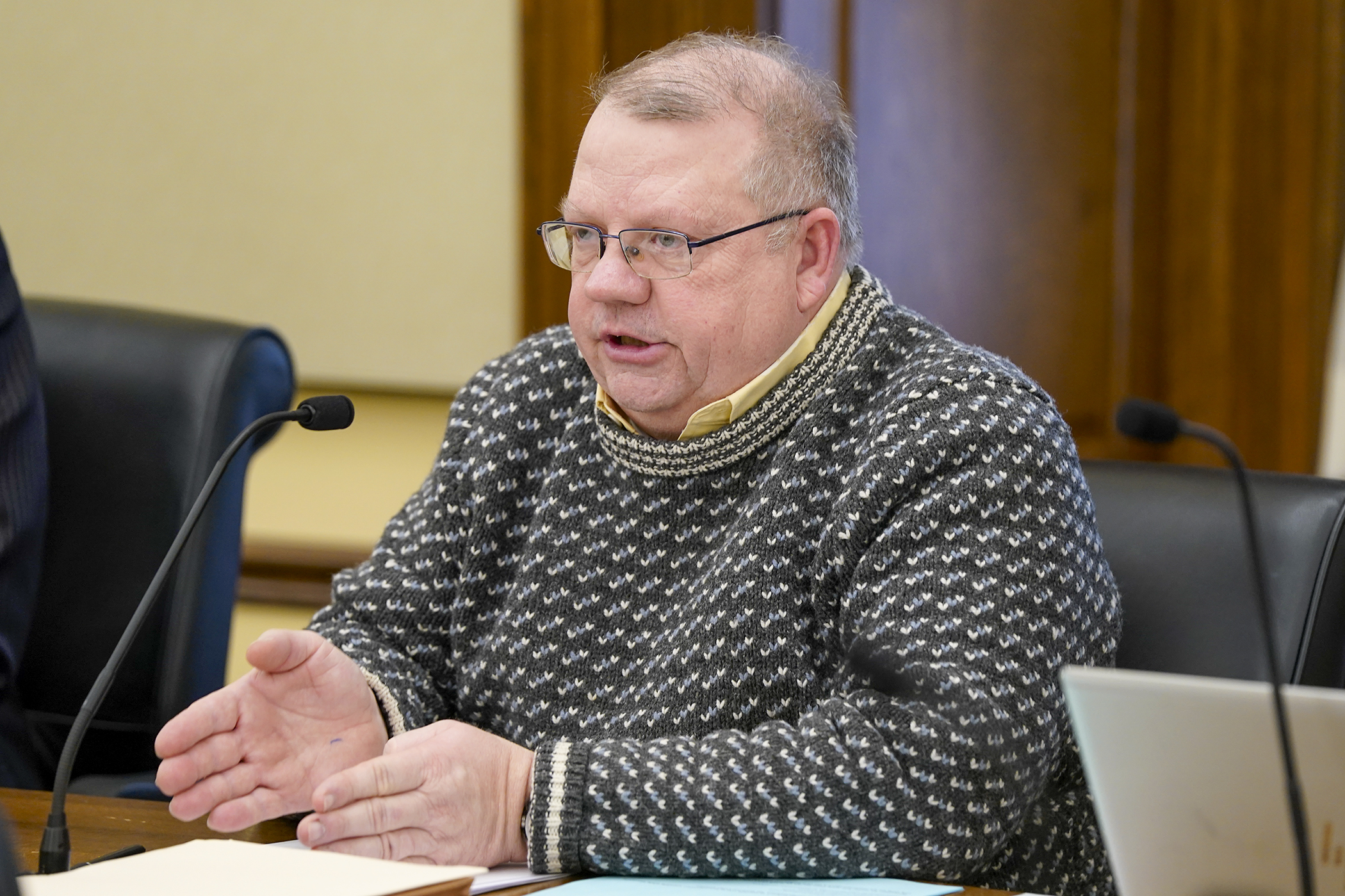Minnesota tutoring tax credit plagued by fraud, bill sponsor says
A 2023 law allows parents to use their tax returns to pay for educational tutoring for their children, but some bad actors are defrauding the state and parents of those funds while providing substandard tutoring services.
“In the end, the child is denied a legitimate education, the parent is essentially robbed of their entitled tax refunds, while these entities and their tutoring partners appear to be paid in full,” said Rep. Ron Kresha (R-Little Falls). “That’s not right.”
He sponsors HF779, which, in part, would repeal the process that allows taxpayers to receive loans to pay for educational services and repay those loans with their tax returns. It would then establish a process where taxpayers can receive a direct advance payment on their education credit from the Department of Revenue to put towards tutoring services of their choosing.
 Rep. Ron Kresha presents HF779 to the House Education Finance Committee Feb. 25. Part of the bill would establish an advance payment of their education credits. (Photo by Michele Jokinen)
Rep. Ron Kresha presents HF779 to the House Education Finance Committee Feb. 25. Part of the bill would establish an advance payment of their education credits. (Photo by Michele Jokinen)
Kresha said he hopes the bill, which was laid over Tuesday by the House Education Finance Committee for possible inclusion in another bill, would still allow legitimate tutoring services to use the program to provide needed education to Minnesota students.
“In this case, there was fraud, and the taxpayer dollars were not going to the right place, and individual families were really severely hurt by that, and that’s really concerning,” said Rep. Samantha Sencer-Mura (DFL-Mpls).
She would like to see the Legislature build and fund tutoring programs for all students instead of giving tax credits for those services.
Kresha said tax credits are the way to go because they directly give parents the funding before the money is filtered through the government.
Matt Shaver, policy director at EdAllies, said the bill would do well in cutting out the middleman, giving parents direct cash for tutoring services, but it doesn’t go far enough in setting tutoring standards.
“If the intent of legislative proposals, like HF779, is to reform the K-12 tax credit in order to prevent fraud, one way of doing that is to set a high enough bar so that crooks and opportunists decide it’s more trouble than it’s worth to try to set up tutoring operations,” he said.
The bill would also direct the Department of Revenue to look into potentially distributing advance payments using an electronic benefits transfer card.
Related Articles
Search Session Daily
Advanced Search OptionsPriority Dailies
Speaker Emerita Melissa Hortman, husband killed in attack
By HPIS Staff House Speaker Emerita Melissa Hortman (DFL-Brooklyn Park) and her husband, Mark, were fatally shot in their home early Saturday morning.
Gov. Tim Walz announced the news dur...
House Speaker Emerita Melissa Hortman (DFL-Brooklyn Park) and her husband, Mark, were fatally shot in their home early Saturday morning.
Gov. Tim Walz announced the news dur...
Lawmakers deliver budget bills to governor's desk in one-day special session
By Mike Cook About that talk of needing all 21 hours left in a legislative day to complete a special session?
House members were more than up to the challenge Monday. Beginning at 10 a.m...
About that talk of needing all 21 hours left in a legislative day to complete a special session?
House members were more than up to the challenge Monday. Beginning at 10 a.m...